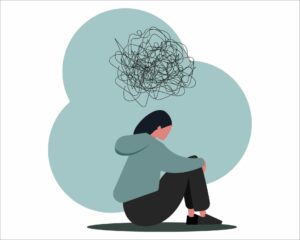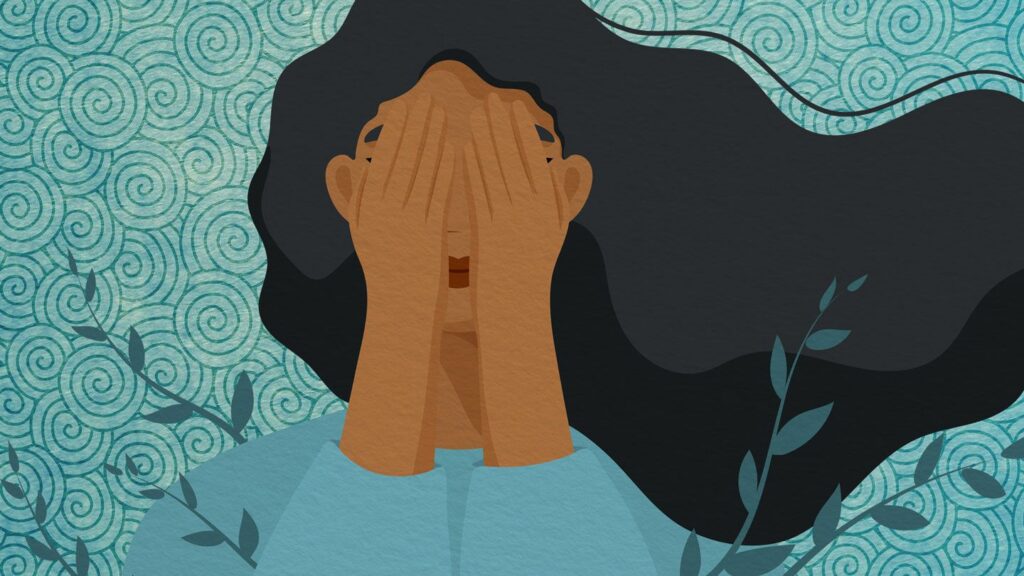Depression is a common mental disorder that causes people to feel sad, hopeless, and worthless. It can interfere with daily activities and cause physical problems such as headaches, stomachaches, and sleeping problems. Depression is treatable, and psychotherapy is the most effective treatment for it. In this blog post, we will discuss the different types of psychotherapy available for treating depression, as well as the benefits of each type.
Contents
What Is Depression?

Depression is a severe mental illness that affects millions of people around the world. This condition can have a devastating impact on one’s life, causing feelings of sadness, hopelessness, and despair.
The causes of depression are complex and can vary from person to person. Some common factors that may contribute to depression include genetics, stress, trauma, substance abuse, and hormonal changes. Treating depression can be challenging, as it often requires a combination of therapies and lifestyle changes.
So if you or someone you love is dealing with depression, please seek professional help right away. With the right treatment plan, there is hope for a brighter future ahead! And remember – you are not alone on this journey; many others understand what you’re going through and will support you every step of the way.
Treating Depression
Treatment of depression can be challenging, and there is no one-size-fits-all approach. There are many different types of therapies available, including psychotherapy and medication.
Of all the different approaches to treating depression, psychotherapy has been proven to be the most effective. This type of therapy focuses on helping people understand their emotions and behavior patterns to address the root causes of their depression.
Psychotherapy For Depression

Psychotherapy has been proven to be the most effective treatment for depression. This type of therapy is a form of talk therapy that involves one-on-one sessions with a trained therapist.
During these sessions, the therapist will help you identify and understand the underlying causes of your depression. They may also provide you with coping strategies and techniques that can help you manage your symptoms more effectively.
The goals of psychotherapy for depression can vary depending on the individual. Some people may seek psychotherapy to simply manage their symptoms, while others may be looking for more long-term help and support as they work towards recovery.
Whatever your goals are, it is important to find a therapist who you feel comfortable working with and who understands your unique needs and circumstances. With the right kind of support and guidance, you can overcome depression and regain control of your life. So if you’re struggling with depression, don’t hesitate to reach out for help today.
Different Types of Psychotherapy For Depression

Ultimately, there is no “right” or “wrong” approach to psychotherapy when it comes to treating depression. Different people may find different therapies more useful depending on their unique needs and circumstances, so it’s important to work closely with a qualified mental health professional who can help you identify the right treatment strategy for you.
Many different types of psychotherapy have been proven to be effective in treating depression. Some of the most common and well-researched approaches include:
Cognitive Behavioral Therapy
Cognitive behavioral therapy is a type of psychotherapy that focuses on helping people address their underlying thought patterns and beliefs related to their depression. It involves identifying negative thoughts, challenging those thoughts, and gradually replacing them with more positive ones. This approach is particularly effective in helping individuals cope with symptoms like low self-esteem, hopelessness, rumination, guilt, anger, or frustration.
Interpersonal Therapy
Interpersonal therapy aims to help people identify dysfunctional relationships and patterns within their social environment that may be contributing to or exacerbating their depressive symptoms. By addressing these issues, people can learn to develop healthier and more supportive relationships with others, which can help them manage their depression over time.
Dialectical Behavior Therapy
Dialectical behavior therapy is a type of psychotherapy that focuses on helping individuals build skills for managing difficult emotions and stressful situations. This approach uses techniques like mindfulness meditation, emotion regulation strategies, and distress tolerance skills to help people better cope with the challenges they face in their daily lives. In DBT also, a major focus is on building and strengthening interpersonal connections, which can help individuals feel more supported and less alone in their struggles.
Family Therapy
An additional type of psychotherapy that can be effective in treating depression is family therapy. Family therapy involves working with the individual’s family members to help them better understand and support their loved one who is struggling with depression. This approach can be constructive for individuals who are having trouble maintaining treatment adherence or coping with depressed moods at home.
Group Therapy
Another alternative to individual psychotherapy for depression is group therapy, which involves working with a small group of people who are also struggling with depressive symptoms. Group therapy can be particularly helpful in providing social support and encouragement, as well as practical coping strategies for managing depression on a day-to-day basis.
Couples Therapy
Sometimes, depression can also affect one’s romantic relationship; in these cases, couples therapy may be useful. Couples therapy involves working with both partners to help them improve communication, resolve conflicts, and support each other through the challenging experience of living with depression. Sometimes, couples therapy can also involve learning new coping strategies for dealing with specific symptoms or situations that may arise.
Psychodynamic Therapy
Another type f psychotherapy that can be effective in treating depression is psychodynamic therapy. This approach focuses on helping people understand the underlying psychological and emotional factors that may have contributed to their development of depression. By exploring these deeper issues, people can learn to better manage their thoughts and emotions, as well as develop healthier coping strategies for managing stress and difficult emotions over time.
Eye Movement Desensitization And Reprocessing Therapy
One of the most cutting-edge therapies for depression today is eye movement desensitization and reprocessing, or EMDR. This approach involves helping people process traumatic memories related to their depressive symptoms, and gradually learn to manage these painful emotions more healthily. Through repeated exposure to these negative thoughts and feelings, individuals can learn new ways of coping with them that ultimately reduce the overall impact that they have on their lives.
Exposure Therapy
An alternative to EMDR that may also be effective in treating depression is exposure therapy. This approach involves gradually exposing individuals to the situations, thoughts, and feelings that trigger their depressive symptoms. By facing these triggers head-on, people can learn how to manage them more effectively and reduce the impact that they have on their overall mood and well-being. In this therapy, individuals may also learn new relaxation techniques and other coping strategies that can help them manage their symptoms more effectively over time.
Mentalization-Based Therapy
An emerging type of psychotherapy that may be especially effective in treating depression is mentalization-based therapy. This approach focuses on helping people understand how their thoughts and feelings influence their mood, behavior, and overall experience of depression. By gaining a deeper understanding of the inner workings of our minds and emotions, we can learn to manage depressive symptoms more effectively over time. Ultimately, this approach can help us develop healthier ways of thinking about ourselves, others, and the world around us – ultimately leading to greater emotional well-being and happiness.
How To Select From Different Types of Psychotherapy For Depression?

Selecting the right type of psychotherapy for depression can be challenging. There are many different types of psychotherapy available, each with its own set of benefits and drawbacks.
At the outset, it is important to consider your specific needs and preferences when selecting a type of psychotherapy for depression. For example, if you are looking for a treatment that focuses on changing your thought patterns or behaviors, then CBT may be the best option for you. On the other hand, if you are more interested in exploring relationships or social issues as they relate to your depression symptoms, then IPT may be a better fit.
So important factors that can help you narrow down your options include the specific symptoms, triggers, and underlying causes of your depression. In addition, it is important to consider any other mental health conditions that may be present, as well as any physical health concerns or medications that may impact treatment.
Ultimately, choosing the right type of psychotherapy for depression requires a thorough evaluation by a qualified therapist who can help guide you through the process and identify which approach would be most effective for you. With the right support and interventions in place, however, there is no doubt that psychotherapy can be an incredibly effective tool for managing depression and improving the overall quality of life.
Benefits of Using Psychotherapy For Depression

There are many benefits of using psychotherapy to treat depression. Some of the most important include:
Improved mood and outlook: Psychotherapy can help you learn new coping strategies and techniques that allow you to manage your symptoms more effectively. This, in turn, can help improve your mood and overall outlook on life.
Reduced risk of relapse or recurrence: One of the biggest challenges for people struggling with depression is the risk of relapse or recurring episodes. With proper treatment and support, however, this risk can be greatly reduced through psychotherapy.
A greater understanding of yourself: Through therapy sessions with a skilled therapist, you will gain deep insight into your thoughts and feelings about yourself, others, and the world around you. This greater self-awareness can be incredibly empowering and help you better understand your needs, desires, and motivations.
Better relationships: By working through the issues that are driving your depression symptoms, psychotherapy can also help improve your relationships with others. This includes family members, friends, coworkers, and partners – all of whom will benefit from seeing you happier and more fulfilled in life.
Overall, there is no doubt that psychotherapy is one of the most effective treatments for depression available today. With the right therapist at your side every step of the way, you can achieve lasting healing and greater well-being in both mind and body.
Conclusion
Psychotherapy is the most effective treatment for depression, by far. This is because it addresses the underlying causes of depression at a psychological level, rather than simply treating the symptoms.
Regardless of which type you choose, psychotherapy will help you better understand your thoughts and emotions so that you can gain control over your moods and start feeling happier again. So if you or someone you love is struggling with depression, consider seeking out professional counseling today! You won’t regret it.
Hope this article was of help to you! If you are suffering from mental health disorders, you may seek help from Therapy Mantra. We have a team of highly trained and experienced therapists who can provide you with the tools and skills necessary for overcoming mental health disorders. Contact us today to schedule an online therapy or download our free Android or iOS app for more information.


